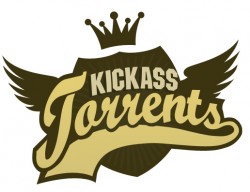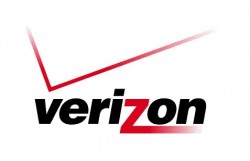Weekly News Roundup (3 March 2013)
Welcome to another edition of the WNR. In my excitement last week, I forgot to mention that I got myself a new Nexus 4 to replace my ageing Sony Ericsson. I’m absolutely loving my N4, it’s hard to find much fault with it (the lack of LTE is a bummer, but I don’t have access to an LTE network with my telco at the moment anyway). What amazes me most is the fact that it comes with 2GB of DDR2 memory. I still have DDR2 desktop memory that cost me more to buy at that time than the N4, and they don’t even fit into the same small space that a N4 occupies.
On with the news …

The UK is once again showing the rest of the world how it’s done in terms of domain blocking, with the High Court yet again issuing orders to block six more suspected piracy websites, including KickassTorrents and Fenopy.
This follows similar orders against Newzbin (and its resurrected mirror, Newzbin2) and The Pirate Bay, with these previous precedents contributing to how easily this latest order was handed down. UK’s biggest ISPs, who combined account for 94% of the UK broadband market, will have 15 working days to block these websites.
With such drastic actions being taken, I eagerly await news of the huge effect this will have on not just the piracy rate, but also revenue for all creative industries. Surely, with these “majors” taken out, revenue should go through the roof for the music, movie and gaming industries, who according to their respective copyright lobbies, are no doubt losing billions of pounds every year to piracy.
I suspect not only will I not see this news item pop up in my inbox, I don’t think anybody is even trying to measure the financial impact of these anti-piracy measures, and anyone trying to do so and coming up with the “wrong” results will be publicly attacked for being biased or incompetent.
France’s HADOPI agency has been somewhat marginalised in recent times, due to a change of government, and the fact that they’ve yet to produce any noticeable results (again, with respect to creative industry revenue, not just the piracy rate). Which means now is the perfect time for the costly and ineffective government bureaucracy to expands its mandate to cover direct downloads and streaming sites, by ways of domain blocking, seizures, financial blockades and even search engine de-listings. They’ve just written a list of recommendations on doing just this, which also includes taking legal action against third parties that refuses to cooperate (so if Google refuses to de-list Vimeo for example, and PayPal refuses to stop their dealings with the video website, then Google and PayPal can both be sued by HADOPI).
To me, these are all solutions to the wrong problem. The problem isn’t the piracy rate. The problem is the monetary losses due to piracy, and it’s amazing to me that we’re implementing solutions left and right without any effort to assess its impact (mainly because we all know the results won’t look good).
Speaking of implementing solutions to the wrong problems, after a delay of what seems like forever, six-strikes is finally happening in the land of the free. The Copyright Alert System (CAS) goes ahead this week, and the major ISPs participating in the program have only just revealed what exactly will happen after subscribers receive too many strikes (refer to link to see what each ISP has in store for you).
Unlike similar systems already underway in other countries, the penalties for excessive strikes will be set by each ISP, and luckily, none so far have opted for a complete account suspension (although this remains an option). Instead, the focus appears to be on education, to inform subscribers what they’ve been doing is wrong, and to let them know of legal alternatives.
So basically, it’s a multi-million dollars a year operation that is targeted at users who are proficient enough with the Internet to downloading tons of pirated stuff, but don’t actually know that what they’re doing is illegal, or know of legal alternatives that they are more than willing to pay for. Might be cheaper to just email the couple of users that fall into this category and tell them to stop it, no?
For the rest that are downloading quite deliberately, all of this will be more of a hassle than a deal breaker, that is if they use one of the ISPs participating in this program in the first place, and if they haven’t bothered to mask their activities from prying eyes (or use download methods not monitored by CAS).
A new report shows that CAS may just be too little, too late, at least where music piracy is concerned. But it’s not because CAS is far too limiting, it’s because there appears to be better ways to fight piracy. A new survey by the NPD group has shown a dramatic decline in piracy rates from 2011 to 2012, some 26% fewer downloads, from some 40% of users who say they’ve stopped downloading pirated music altogether.

Spotify and other licensed music services are dealing a blow to piracy, and also satisfying consumer needs at the same time
But instead of this being down to law enforcement action, most of those surveyed who said they stopped downloading say it was services like Spotify that helped them “get clean”. While 20% did say that the shutdown of their favourite piracy stops, and the threat of malware, had convinced them to start doing the right thing (or at least stop doing the wrong thing), nearly half said that legal alternatives were responsible.
And coincidentally, this same week, the IFPI release their annual Digital Music Report, which showed that music revenue rose 0.3%. A small rise, but the first annual rise since 1999. The rise was largely attributed to the rise in digital music spending, up some 9% in 2012. Even the IFPI, a staunch supporter of tougher anti-piracy action, noted that “licensed music services”, such as Spotify, are “demonstrably meeting consumers’ need”. Who’d have thunk it that “meeting consumers’ needs” was a better way of fighting piracy than simply clamping down on those very same piracy service that had been filling the void by “meeting consumers’ needs”.
And it’s also interesting to note that despite a 26% decline in piracy rate, only a 0.3% increase in revenue was recorded. The relationship between piracy and revenue is definitely not one to one, it seems.
If laws and monitoring isn’t working, and you can’t be bothered coming up with legal alternatives, then there’s always DRM! Another week, another anti-piracy patent by Sony. This new patent apparently uses game loading time as a way to detect if the game is pirated or not.
I guess how it would work is that there’s a database of game loading times for the legit copy of games, but if a game is being loaded too quickly (ie. it’s not being loaded from BD, but from a hard-drive), then that would see the game flagged as a pirated copy and loading blocked. Games that take too long to load (eg. from a DVD rip instead of an original BD copy) can also be flagged this way. The system does take into account different media types (eg. flash drive loaded games, versus downloads versus discs).
The obvious problem with this system is that sometimes legit discs can take too long to load too, because the disc may be damaged from wear and tear, or your PS3/PS4 is just having one of those days. It also doesn’t prevent those making piracy-enabled firmware to artificially delay game loads from HDDs to emulate an actual disc load. So anti-piracy wise, it’s unlikely to do much, but it may very well inconvenience many owners of legit copies.
“But this being a patent application means that it is just as likely to never see the light of day as an actual application, but you do have to give Sony credit in finding new and more annoying DRM” is what I posted the last time an anti-piracy patent related story popped up, and the same goes here.
And so we come to the end of another WNR. Hope you’ve enjoyed this issue, see you next week.


